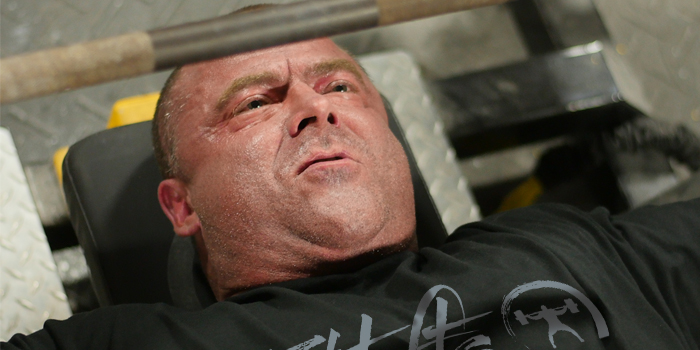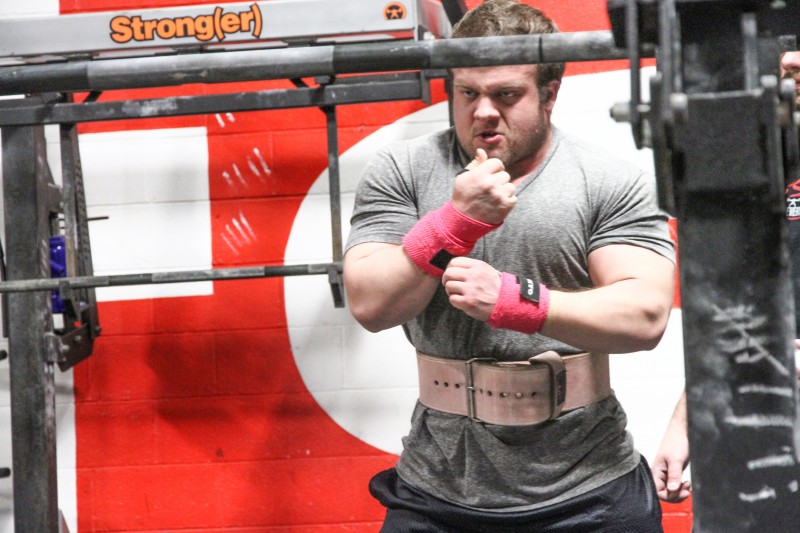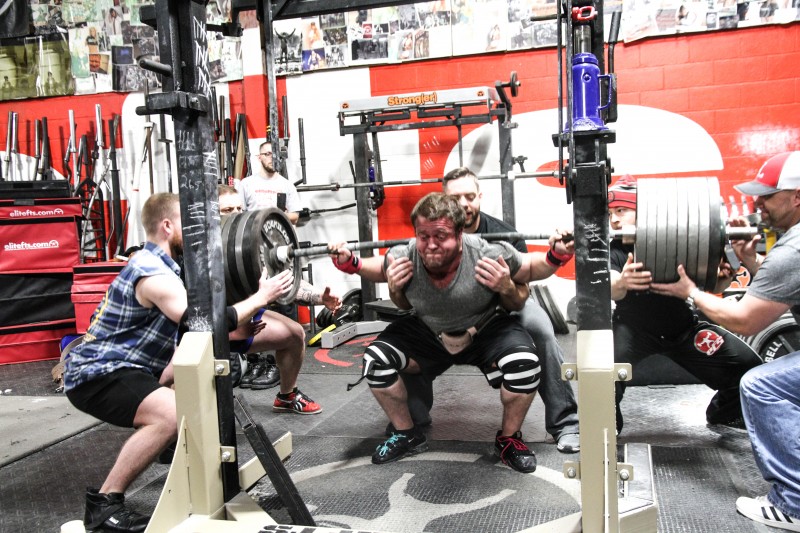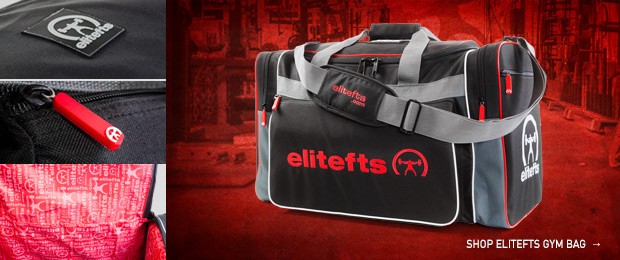
Anyone that has competed in powerlifting has realized that it’s just not as simple as showing up and lifting weights. There are a lot of variables that require proper management in order to be successful on the platform. A lifter has to take into consideration nutrition, sleep, rest, warm-up protocol, working around injuries, having a good handler, and programming to peak properly. Competing on the platform is a small piece of the puzzle. I don’t think a lot of people realize how much sweat, sacrifice, work, and effort it takes to compete and have a great meet. Sometimes it’s well worth the effort to have a good coach or handler that can help you keep your ship guided on the right path.
Training
There are numerous training programs available to help you get stronger and prepare for a meet. Are you using the right one? Are you making progress? Does the program address your weaknesses so you are always progressing? Do you have anyone that can help you improve your technique, or are you just going to the gym failing session after session, without really knowing what you are trying to accomplish, like a cork floating down the river without any purpose or direction? Sometimes it will take you a while to figure out which program works best for you. A training program is simply a template to follow. It can give you some direction but to really get dialed in, you need to find what works best for you so you can develop your own “blueprint." The same program will yield different results for different lifters dependent upon your current level of strength and weaknesses.
Sleep
Sleep is something that, in my opinion, a lot of lifters don’t give enough credit to for improving strength and helping with recovery. While you sleep, your body repairs and recovers from your heavy training sessions. As a strength athlete, sleeping should be on top of your list of priorities. Try to get an extra hour or two of sleep every night or even try to catch a couple of short naps during the day and see how much different your training goes. If you’re training like a madman and you’re only sleeping a few hours a night, chances are you will start to regress in your training, the weight will feel heavier and move slower than it should, and you won’t recover properly. Sometimes even removing one training day a week and replacing it with a rest day will yield huge improvements in your strength development.
Nutrition
Nutrition is the foundation and provides the cellular building blocks to support your training. If you’re eating shitty, processed food to fuel your body, chances are it won’t be nutritionally optimal. I’m definitely not one to measure every gram of protein, carbs, or fat that I put into my body, but I do know the difference in how I feel if I eat good whole food instead of processed shitty food. Ever notice if you go away for a few days and you have to rely on eating at restaurants on a daily basis for a while, you usually start feeling lethargic, weak, tired, and shitty?
RECENT: My Bittersweet 2016 WPC Worlds
I usually start feeling shitty in about three days. Once you get out of your routine of eating good food, it doesn’t take long for your body to tell you it sucks. Anytime we go away for a competition or travel for a few days, we pack a cooler full of good food that is available when required. It is always a better alternative than eating restaurant food day after day. This should be part of your plan for competition day as well.
Rest
Rest is different than sleep. Rest means taking a break from your training to ensure you are completely regenerated, healed up from your training cycle, and ready to get on the platform to compete. In my opinion, the biggest mistake that some lifters make is to lift too heavy, too close to a meet. I take my last heavy squat session three weeks out from a meet and plan on having two full weeks of not lifting anything prior to competing. I’ve seen people lift 90% for doubles or triples three or four days out from competition day. Then they get to the meet and make one lift, usually their opener, and then can’t figure out why they didn’t have any gas left in the tank. It makes me crazy when people ask for your advice about rest leading up to a meet and when you tell them to take at least 10 to 14 days off before meet day, they think you’re nuts. They say, “Maybe I’ll try that next time,” and then they go 3/9 on meet day. Those mistakes are completely preventable and are one of the things that make me mental.
Warming Up
Warm-ups are supposed to be what the word says: warming up. This does not mean grinding out an opener or second attempt in the warm-up room five minutes before you go on the platform. I think a lot of people make some pretty huge mistakes in the warm-up room prior to a meet. I’ve watched lifters do heavy doubles or triples or even grind out an opener before they compete. WTF? You have to have a viable strategy in the warm-up room to make sure you’re ready. You can’t be mindlessly taking rep after rep after rep too early or too late. Pay attention to the order of the current flight and make sure you take your last warm-up halfway through the third attempts on the flight before you. You want to be warmed up, not exhausted. I can watch people in the warm-up room and accurately predict who is going to do well and who is going to bomb or make one lift. Be smart. Save your energy for the platform.
Picking Attempts
Another pet peeve of mine is trying to convince people to take easy openers and get their head in the meet. It baffles me why newer lifters want to open with their first attempt too heavy.
“Yeah, but (insert excuse/reason here)."
Nobody cares about your opener or your second squat if you nail your third and hit a new PR. If you squatted 500 pounds at a meet and somebody asks you how you did, you never answer them with the number of your opener or second attempt. I had one of our newer lifters want to open up with her squat 20 pounds less than her meet goal. I asked her, “If I want to squat 1000 pounds at my next meet, do you think it’s smart if I open up with 980 pounds?”
“Well, when you say it that way it doesn’t sound very good."
Point taken. Take an easy opener to get some confidence and get in the meet.
Cutting Weight
This is probably my biggest pet peeve with newer lifters: “I want to cut weight.”
This phrase should say, “I want to compete a lot weaker than I am right now.” I don’t know why newer lifters get brain washed into believing they should cut weight for a meet. Your first few meets should be all about getting some experience competing, finding out how you feel, performing that day, and having fun! There are enough variables going into meet day without adding another one where you have to cut weight and try to gain it back so you have some strength. The only time you should cut weight for a meet is if you are trying to achieve an all-time world record in a specific weight division. That’s it! I see so many new lifters cut weight, feel like shit, and maybe go 3/9 or 4/9 for their day because they’ve got nothing in the tank. Why not just compete heavy and strong, hit some new PRs, and have fun? Repeat after me: “Don’t cut weight!”
When you’re competing at a meet, you want to be firing on all cylinders. You don’t need a flat tire, or a bent valve, or a seized water pump; you need everything to be “in-tune” for one specific day.
To ensure you are in an optimal state, you need to manage everything we spoke about: training, nutrition, sleep, warm-ups, rest, and having a good strategy for picking your attempts. If anyone of these things aren’t properly addressed and managed properly prior to meet day, you’re not going to have a great day. The more competitions you compete in and the more experience you have under the bar, the better you will become at managing your meet prep for greater success in your future.













1 Comment